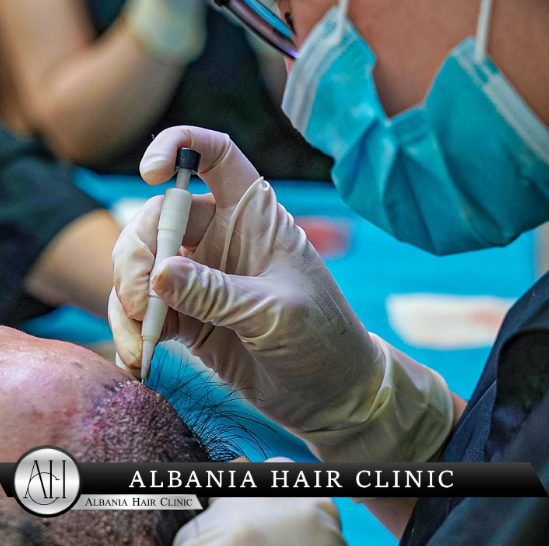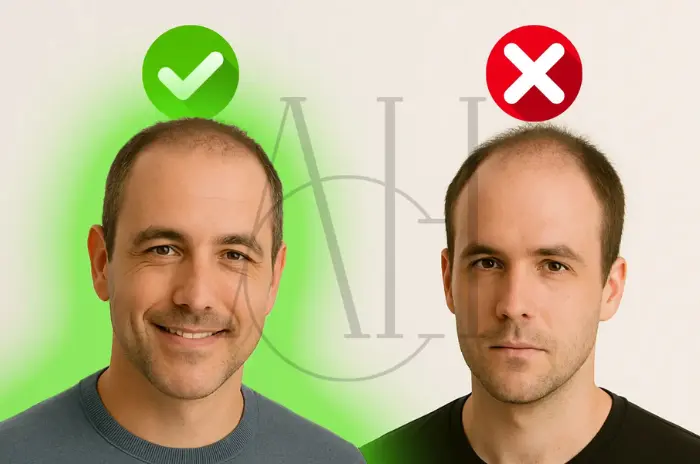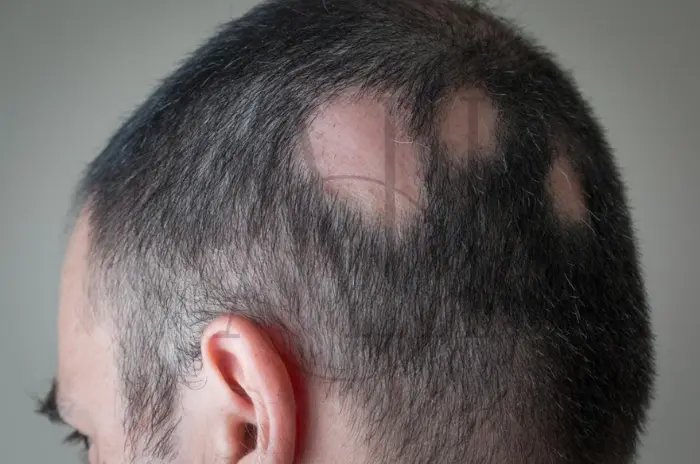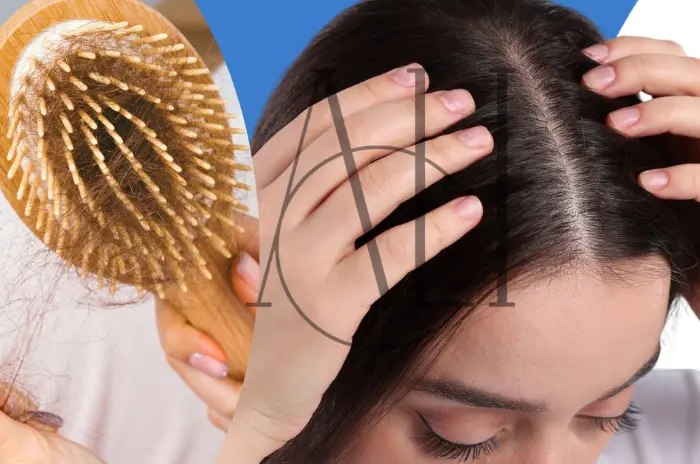La caduta dei capelli e la forfora sono problemi comuni a milioni di persone in tutto il mondo. Anche se possono sembrare non correlati, a volte questi problemi possono essere interconnessi. In questa guida completa analizzeremo il ruolo dei trapianti di capelli nel trattamento della perdita di capelli e il loro potenziale impatto sulla forfora. Inoltre, forniremo consigli pratici per gestire la forfora prima e dopo un trapianto di capelli.
Table of Contents
ToggleCapire la caduta dei capelli e la forfora
Quali sono le cause della caduta dei capelli?
La caduta dei capelli può essere causata da diversi fattori, tra cui:
- Genetica: La calvizie maschile e femminile sono condizioni ereditarie.
- Cambiamenti ormonali: Condizioni come la PCOS o la menopausa possono portare al diradamento dei capelli.
- Stress e stile di vita: Un’alimentazione scorretta, la mancanza di sonno e alti livelli di stress possono indebolire i follicoli piliferi.
- Condizioni mediche: L’alopecia areata, i disturbi della tiroide e le infezioni del cuoio capelluto possono causare la perdita di capelli.
Cosa causa la forfora?
La forfora è caratterizzata da pelle del cuoio capelluto desquamata e pruriginosa causata da:
- Pelle secca: Il freddo o l’insufficiente idratazione del cuoio capelluto possono causare la forfora.
- Sovraccrescita fungina: La Malassezia, un fungo presente in natura, può scatenare la forfora quando cresce eccessivamente.
- Condizioni della pelle: La psoriasi o la dermatite seborroica possono contribuire alla desquamazione.
- Cura impropria dei capelli: lavaggi poco frequenti o un uso eccessivo di prodotti per capelli possono peggiorare la forfora.
Il legame tra caduta dei capelli e forfora
Sebbene la caduta dei capelli e la forfora siano condizioni distinte, possono influenzarsi a vicenda. La forfora cronica può irritare il cuoio capelluto, portando all’indebolimento dei follicoli piliferi e alla caduta dei capelli. Al contrario, i trattamenti per la caduta dei capelli o gli interventi chirurgici al cuoio capelluto possono esacerbare la forfora a causa di una maggiore sensibilità del cuoio capelluto.
Come funziona il trapianto di capelli
Il trapianto di capelli è un intervento chirurgico volto a ripristinare la capigliatura nelle aree di diradamento o calvizie. I due metodi principali sono:
- Trapianto di unità follicolari (FUT): Viene rimossa una striscia di cuoio capelluto e i follicoli vengono prelevati e trapiantati.
- Estrazione di unità follicolari (FUE): I singoli follicoli vengono estratti e impiantati nel cuoio capelluto.
Queste procedure sono efficaci per affrontare la perdita di capelli genetica ma non trattano direttamente la forfora. Tuttavia, un cuoio capelluto più sano dopo il trapianto può ridurre indirettamente i sintomi della forfora.
Si può fare un trapianto di capelli se si soffre di forfora?
Sì, ma la condizione deve essere gestita prima dell’intervento. Una forfora eccessiva può aumentare il rischio di infezioni e complicazioni durante il processo di guarigione. Il dermatologo potrebbe consigliare trattamenti come shampoo medicati o farmaci antimicotici per controllare la forfora prima dell’intervento.
Gestire la forfora prima di un trapianto di capelli
1. Usa shampoo medicati
Opta per shampoo che contengono ingredienti attivi come:
- Ketoconazolo: Combatte le infezioni fungine.
- Zinco piritione: Riduce la crescita dei funghi e lenisce le infiammazioni.
- Acido salicilico: Esfolia le cellule morte della pelle.
2. Mantenere l’igiene del cuoio capelluto
Lava i capelli regolarmente per evitare l’accumulo di olio e la formazione di funghi. Tuttavia, evita di esagerare con i lavaggi, perché potrebbero eliminare gli oli naturali e causare secchezza.
3. Consulta un dermatologo
Una valutazione professionale può identificare le condizioni sottostanti che contribuiscono alla forfora e consigliare trattamenti personalizzati.
Gestione della forfora dopo un trapianto di capelli
La cura post-trapianto è fondamentale per ottenere risultati ottimali e per la salute del cuoio capelluto.
1. Evita di grattare il cuoio capelluto
Il prurito è comune durante il recupero, ma grattarsi può staccare gli innesti e peggiorare l’irritazione.
2. Segui le linee guida per lo shampoo post operatorio
La maggior parte dei chirurghi raccomanda uno shampoo delicato per pulire il cuoio capelluto senza disturbare gli innesti. Evita gli shampoo aggressivi che possono esacerbare la secchezza o la desquamazione.
3. Mantenere il cuoio capelluto idratato
Usa creme idratanti approvate da un dermatologo per evitare la secchezza, che può aggravare la forfora.
4. Monitoraggio delle infezioni
L’infiammazione post-intervento può simulare la forfora, ma il rossore persistente o le crosticine possono indicare un’infezione. Rivolgiti a un medico se i sintomi peggiorano.
Il ruolo di un cuoio capelluto sano per il successo del trapianto di capelli
Un cuoio capelluto ben nutrito e privo di forfora migliora le possibilità di sopravvivenza dell’innesto e favorisce una crescita più sana dei capelli. L’integrazione di massaggi al cuoio capelluto e il mantenimento di una dieta equilibrata ricca di vitamine e minerali possono migliorare ulteriormente i risultati.
Nutrienti essenziali per la salute del cuoio capelluto
- Biotina: Promuove la forza dei capelli.
- Vitamina E: migliora la circolazione del cuoio capelluto.
- Zinco: regola la produzione di sebo e riduce la forfora.
- Acidi grassi Omega-3: idratano il cuoio capelluto e riducono l’infiammazione.
Rimedi naturali per la forfora
Se preferisci i trattamenti naturali, prova queste opzioni:
1. Olio di Tea Tree
Le sue proprietà antimicotiche possono combattere efficacemente la forfora. Mescolane qualche goccia con un olio vettore e applicalo sul cuoio capelluto.
2. Aceto di sidro di mele
L’aceto di sidro di mele diluito può bilanciare il pH del cuoio capelluto, riducendo la crescita di funghi e la desquamazione.
3. Aloe Vera
Questo gel lenitivo idrata il cuoio capelluto e riduce il prurito.
4. Olio di cocco
Un’applicazione regolare può idratare il cuoio capelluto e prevenire la crescita di funghi.
Quando rivolgersi a un professionista
Mentre la forfora lieve può essere gestita a casa, i casi persistenti o gravi richiedono l’intervento di un medico. Consulta un dermatologo se:
- I trattamenti da banco falliscono.
- Si verifica un’eccessiva perdita di capelli insieme alla forfora.
- Il cuoio capelluto mostra segni di infezione, come arrossamento o pus.
Conclusione
Il trapianto di capelli può ripristinare efficacemente i capelli persi, ma la gestione della forfora è essenziale per un cuoio capelluto sano e per ottenere risultati positivi. Affrontando la forfora prima e dopo l’intervento, potrai massimizzare i benefici del trapianto e ottenere una chioma più folta e sana. Ricorda che la combinazione di una guida professionale, di una corretta cura dei capelli e di una dieta equilibrata è la chiave del successo a lungo termine.




